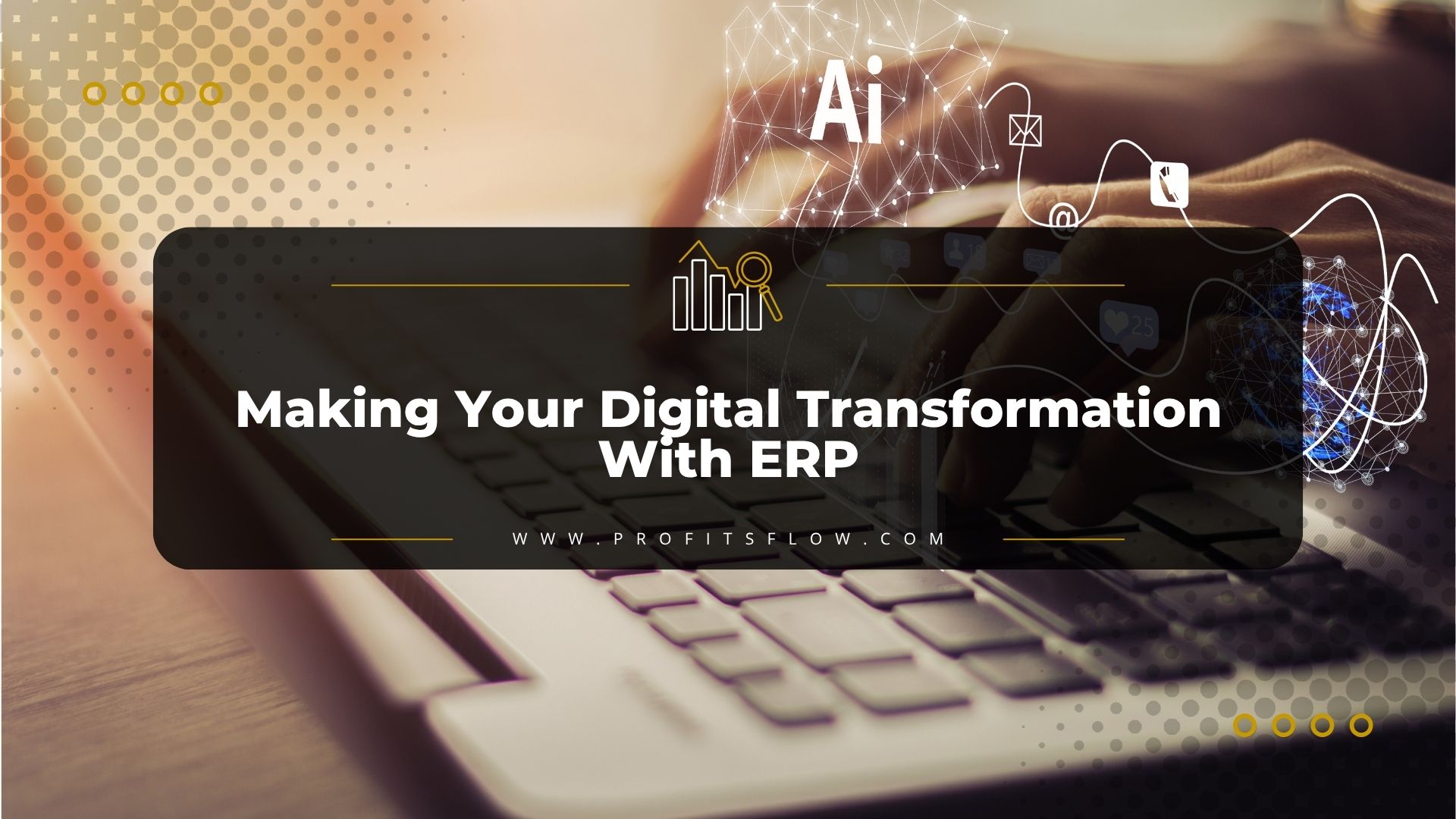Digital transformation is not just a buzzword—it’s a necessity. Organisations across industries are embracing new technologies to streamline operations, improve customer experiences, and gain a competitive edge. At the heart of this evolution lies a powerful enabler: Enterprise Resource Planning (ERP) systems. below why companies are making their digital transformation with ERP.
What Is Digital Transformation?
Digital transformation refers to the integration of digital technology into all areas of a business, fundamentally changing how organisations operate and deliver value to customers. It’s not just about adopting new tools—it’s about reshaping business models, improving efficiency, and driving innovation.
Why ERP Is Central to Digital Transformation
ERP systems unify core business functions like finance, supply chain, production, and customer relationship management into a single, cohesive platform. By centralising data and automating processes, ERP systems provide the digital foundation companies need to transform effectively.
Here’s how ERP drives digital transformation:
- Integrated Operations
Digital transformation requires a seamless flow of information across departments. ERP systems eliminate data silos by consolidating all key functions into one platform. This integration improves collaboration, reduces duplication, and ensures decision-makers have access to real-time insights.
- Enhanced Data-Driven Decision Making
ERP platforms are equipped with robust analytics and reporting tools. These enable businesses to harness the power of their data—spot trends, forecast demand, and respond quickly to changes. Real-time dashboards provide visibility across operations, empowering leadership to make informed, strategic decisions.
- Improved Customer Experience
Customer expectations have never been higher. With ERP, companies can deliver more personalised, efficient, and responsive service. For example, faster order processing, accurate inventory tracking, and integrated customer service tools all contribute to a better experience.
- Scalability and Flexibility
Cloud-based ERP systems, in particular, offer scalability that supports business growth and change. Whether you’re expanding into new markets or adopting new business models, a modern ERP can adapt to your evolving needs.
- Increased Operational Efficiency
Manual processes and legacy systems hinder productivity. ERP automates routine tasks, reduces errors, and optimises workflows, freeing up teams to focus on strategic activities rather than administrative ones.
- Regulatory Compliance and Risk Management
With growing regulatory demands, compliance is a key concern. ERP systems help manage compliance by standardizing processes and maintaining detailed records. Built-in security features also reduce the risk of data breaches and unauthorised access.
Digital transformation is not a one-time project—it’s a continuous journey. Implementing an ERP system is a crucial step in building the digital backbone needed for long-term success. By aligning technology with business strategy, ERP empowers organisations to innovate, scale, and deliver value in an increasingly digital world.
Whether you’re just starting your transformation journey or looking to enhance existing systems, the right ERP solution can make all the difference.
